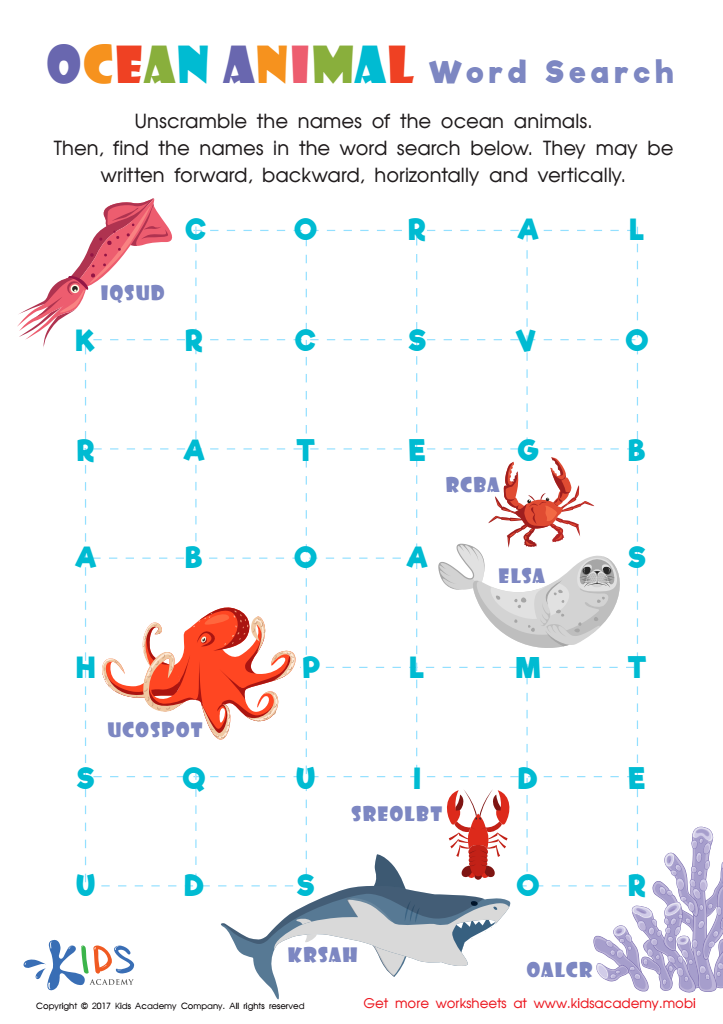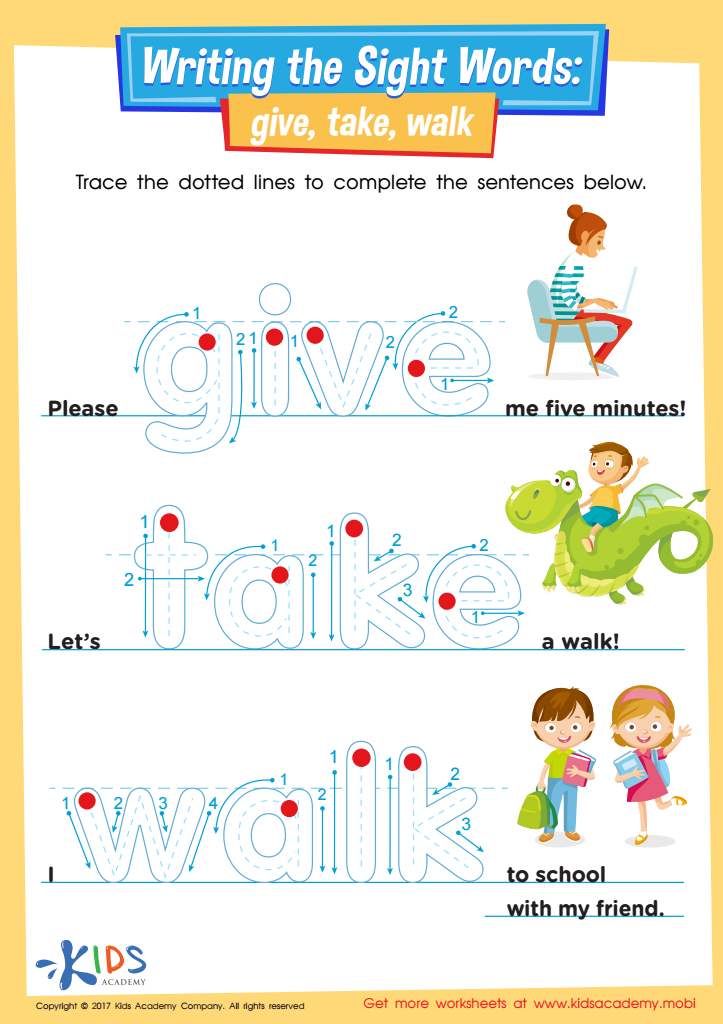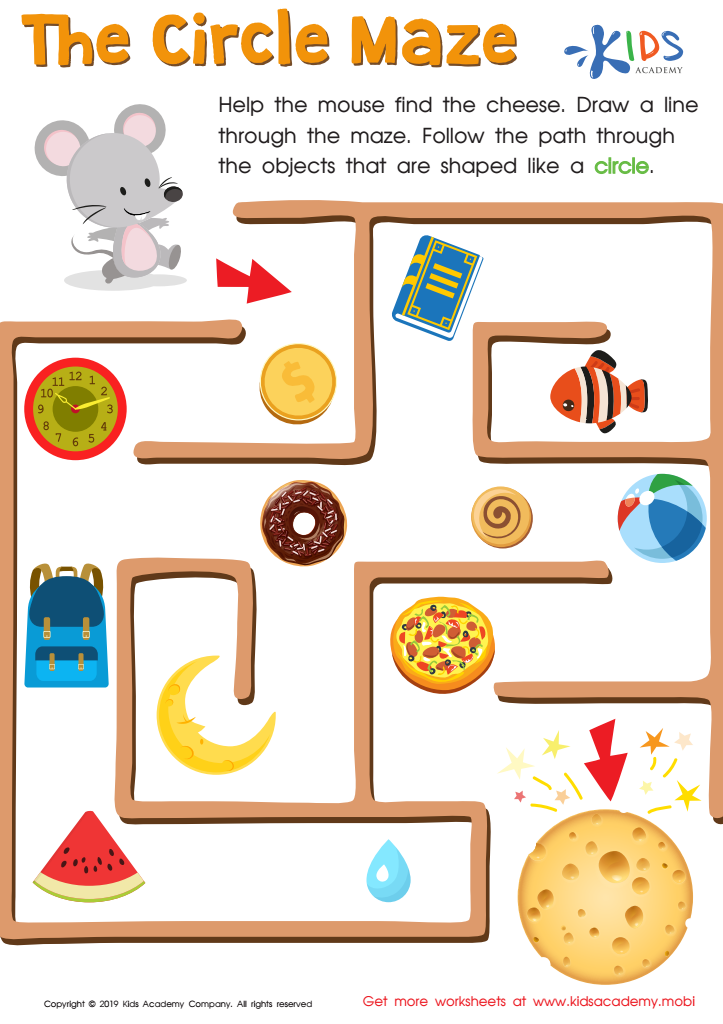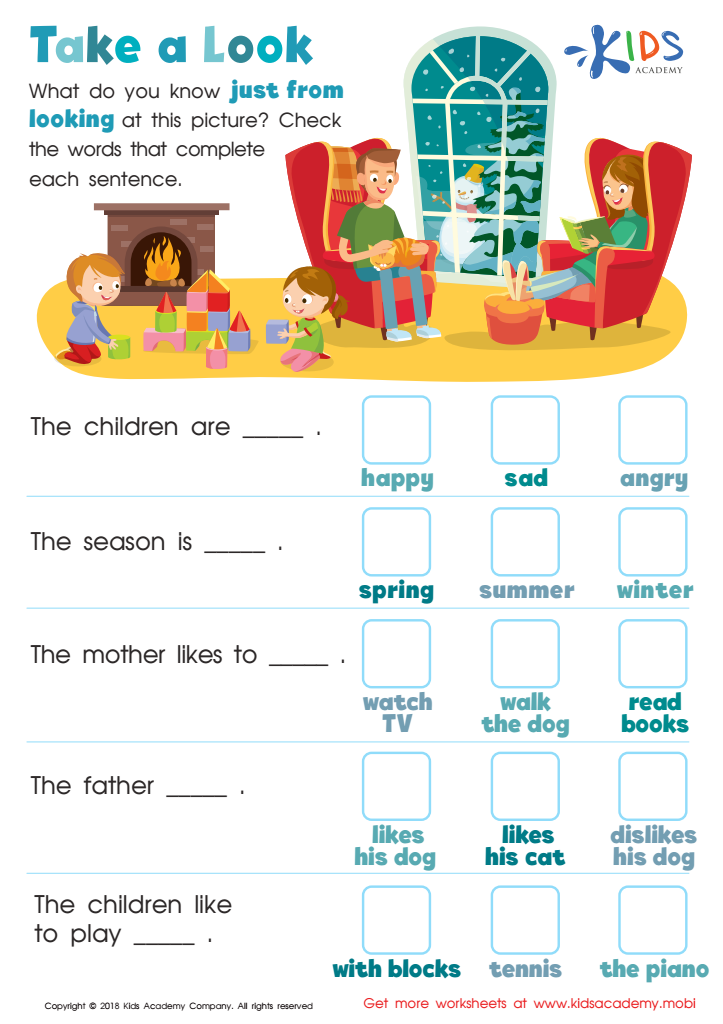Problem-Solving Skills English for Beginners Worksheets for Ages 7-8
4 filtered results
-
From - To
Explore our "Problem-Solving Skills English for Beginners Worksheets" tailored for children ages 7-8! These engaging resources introduce young learners to essential problem-solving techniques through fun activities and interactive exercises. Designed to reinforce critical thinking and comprehension, our worksheets enable students to tackle real-world scenarios and puzzles in English, enhancing their language skills along the way. Perfect for ESL learners, these materials promote creativity and collaboration while ensuring that kids enjoy a hands-on learning experience. Boost your child's confidence and competence in problem-solving with our thoughtfully crafted worksheets, making language learning both effective and enjoyable!


Ocean Animals Word Search Printable


Give, Take, Walk Printable Sight Words Worksheet


The Circle Maze Worksheet


Take a Look - Part 1 Worksheet
Parents and teachers should prioritize problem-solving skills for English language beginners aged 7-8 because these skills lay the foundation for critical thinking and everyday decision-making. As children learn English, enhancing their problem-solving abilities assists them in navigating complex situations in both academic and social contexts. This age group is at a crucial developmental stage where cultivating cognitive skills can influence their future learning and adaptability.
Moreover, problem-solving activities in English encourage creativity and innovation. Such activities often require students to communicate their thoughts, which not only bolsters their language acquisition but also fosters collaboration and teamwork. When children work together to tackle challenges, they build resilience and develop a sense of community, essential for their emotional and social growth.
In addition, problem-solving skills directly impact children's academic performance. Students who can analyze problems and formulate effective solutions are better equipped to tackle subjects that demand critical thinking and reasoning. Ultimately, investing in these skills for English learners isn't just about language proficiency; it's about nurturing well-rounded, adaptable individuals who can thrive in future educational pursuits and real-world interactions. Facilitating this growth benefits not just the child, but the community and society as a whole.
 Assign to My Students
Assign to My Students

















